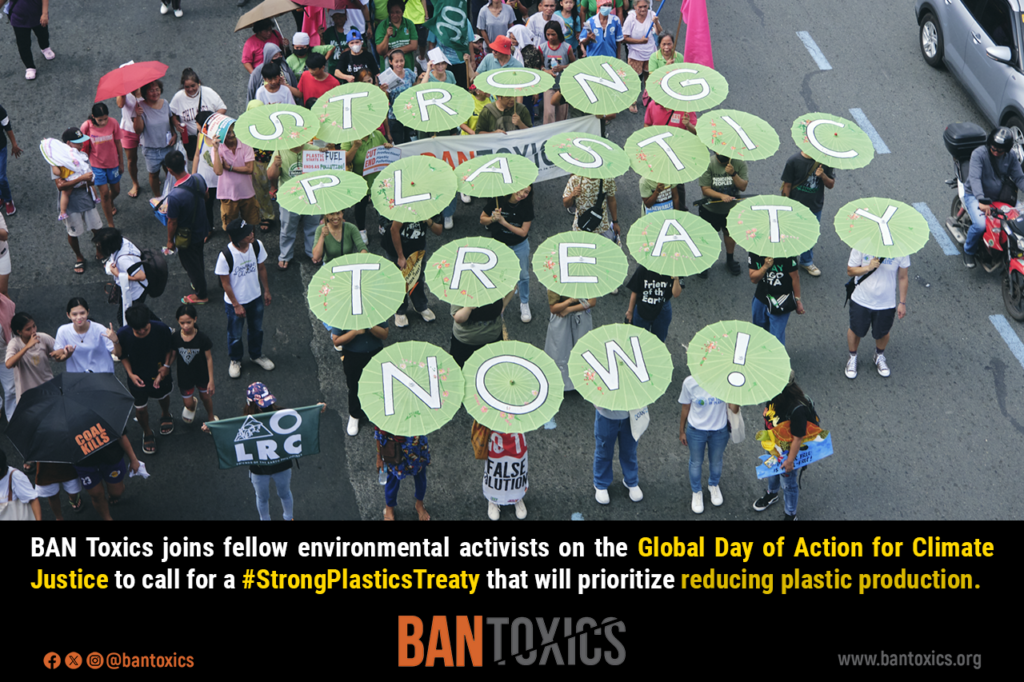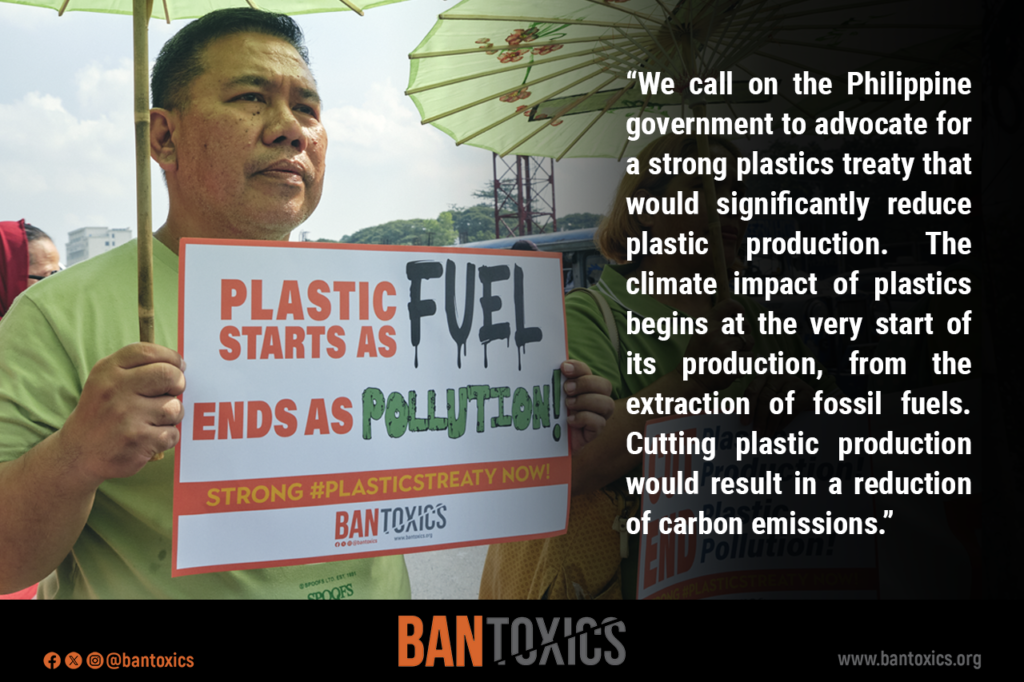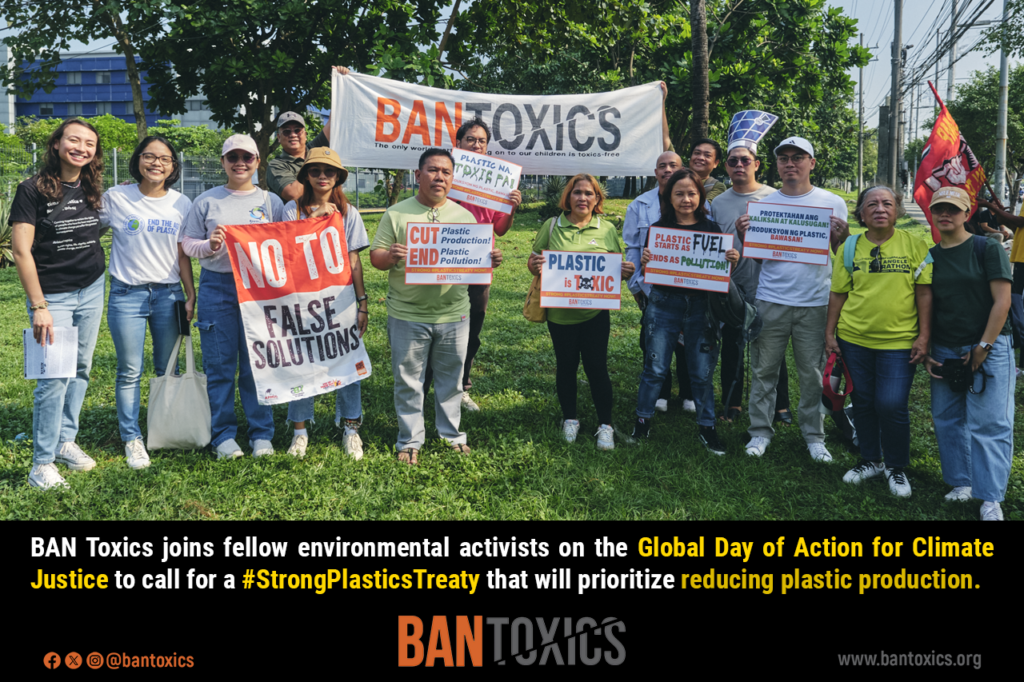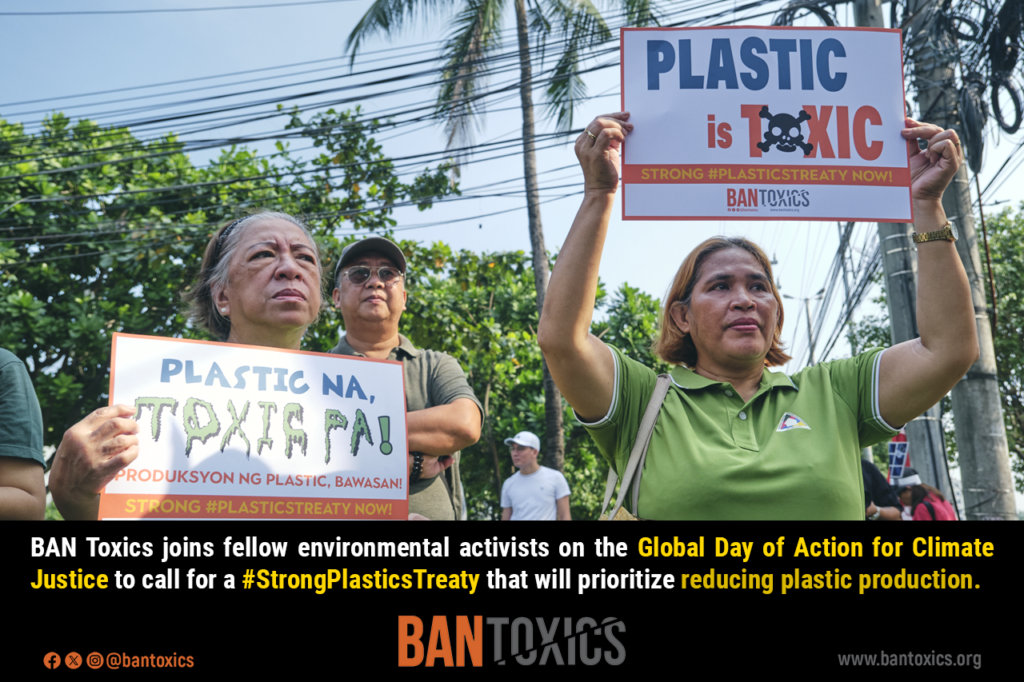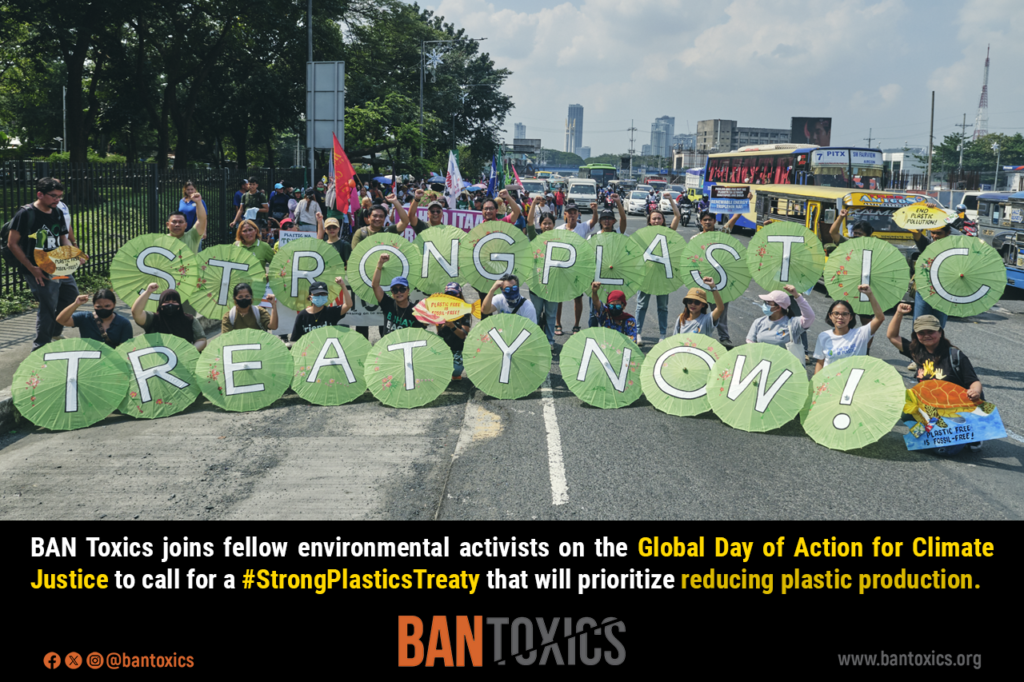Together with fellow environmental activists, BAN Toxics joined the Global Day of Action for Climate Justice on November 15 to call for a #StrongPlasticsTreaty that will prioritize reducing plastic production.
Read the joint press release below to learn more:
(Quezon City, November 16, 2024) – Environmental activists joined thousands of citizens yesterday in the Global Day of Action for Climate Justice, calling on the Philippine government to link its climate action to the upcoming negotiations for a global treaty to curb plastics pollution.
“With latest reports projecting the growth of plastics overproduction towards contributing 20% of global greenhouse gas emissions by 2050, it is urgent for a Global Plastics Treaty to be passed to drastically curb plastics pollution. In particular, the Philippine government must champion an ambitious plastics treaty as we are drowning in climate change-aggravated floods worsened, among others, by almost a million tons of annually mismanaged plastic pollution,” said Leon Dulce, campaigns support and linkages coordinator of Legal Rights and Natural Resources Center (LRC).
With the Fifth Session of the Intergovernmental Negotiating Committee on Plastic Pollution convening in less than two weeks in Busan, South Korea, environmental groups recently released an open letter urging the Philippine government to maintain and reinforce current positions taken by the government thus far towards an ambitious and effective plastics treaty.
“Plastic fuels the climate crisis, with 99% derived from fossil fuels. Its unchecked production worsens climate impacts. As the fifth and final Global Plastics Treaty negotiations approach, the Philippines stands at a pivotal moment. A strong treaty is our lifeline to end plastic pollution and protect both the people and the planet,” said Greenpeace Philippines’ Zero Waste Campaigner Marian Ledesma.
“We call on the Philippine government to advocate for a strong plastics treaty that would significantly reduce plastic production. The climate impact of plastics begins at the very start of its production, from the extraction of fossil fuels. Cutting plastic production would result in a reduction of carbon emissions,” said Jam Lorenzo, Deputy Executive Director of BAN Toxics.
The groups said that the Philippine government should shy away from false solutions peddled as waste management solutions for plastic usage, and strengthen its position on real solutions.
“The evidence is undeniable, plastics are out of control, posing a threat to both our environment and health, and the only path forward is to tackle the issue at its root by cutting plastic production. We cannot rely on false solutions like waste-to-energy incineration, co-processing, chemical recycling, or plastic-to-fuel technologies which, far from solving the problem, only perpetuate plastic production, release harmful emissions, and worsen the climate crisis,” said Aileen Lucero, National Coordinator of EcoWaste Coalition.
“We hope the government will continue to push strongly for the promotion of reuse-and-refill models, product redesign to lessen material and energy use, repairability, repurposing, remanufacturing, and safe recyclability,” said Mayang Azurin, Asia Pacific Director of the Global Alliance for Incinerator Alternatives (GAIA), noting that the Philippines government has maintained progressive positions in prior negotiations.
Latest estimates coming from the Berkeley National Laboratory demonstrate that current annual plastics production is equivalent to 2.24 gigatons of carbon dioxide or around 600 coal-fired power plants.
In the Plastics Overshoot Day 2023 Report, the Philippines was classified as among countries that have low plastic consumption yet generate a high level of plastic pollution due to high plastic import volumes and bad waste management effectiveness.

